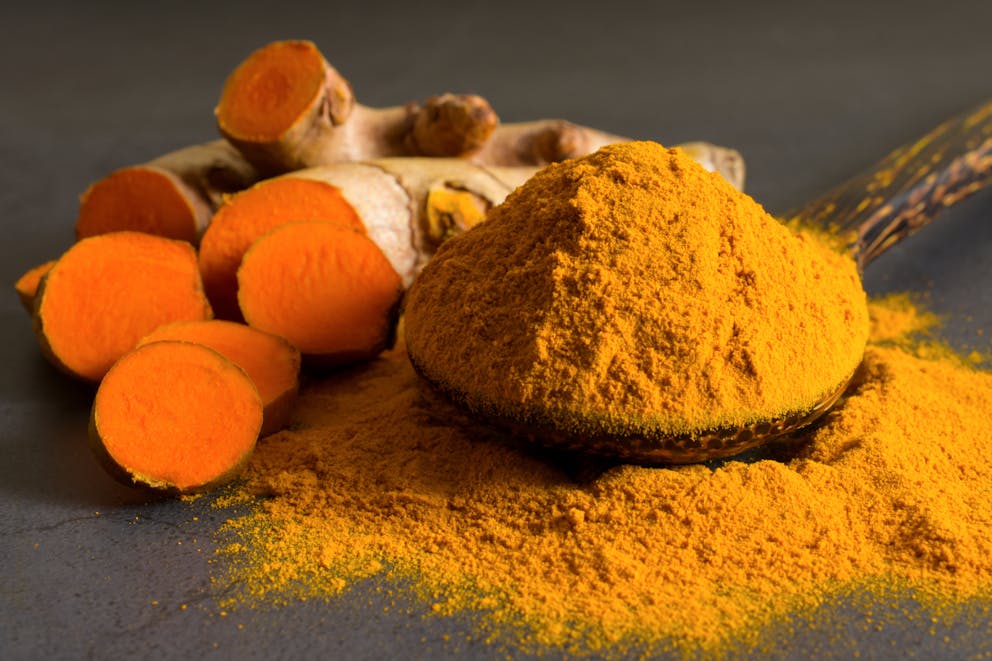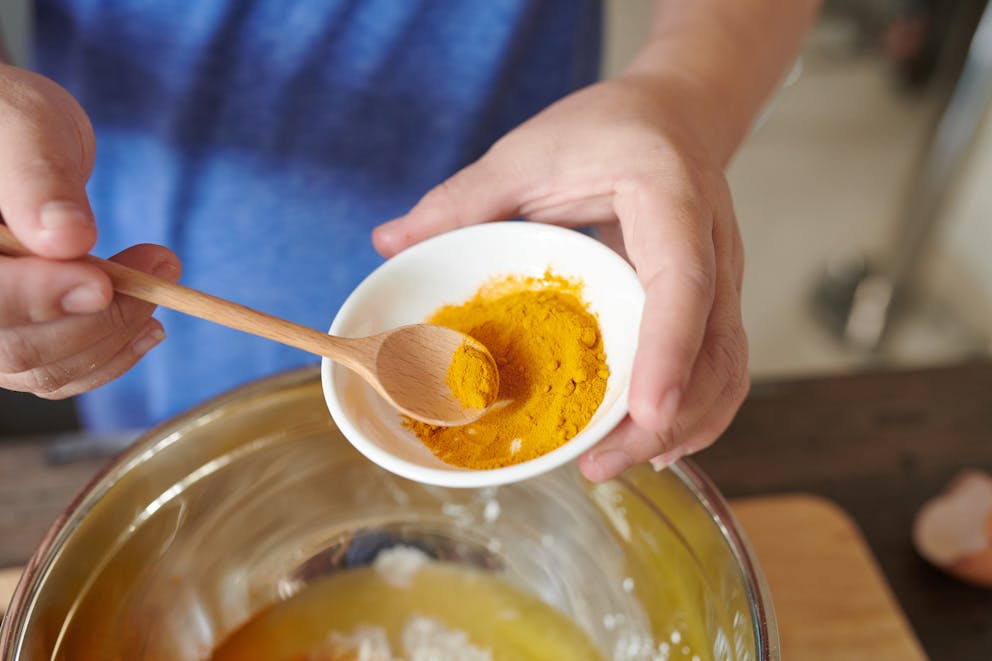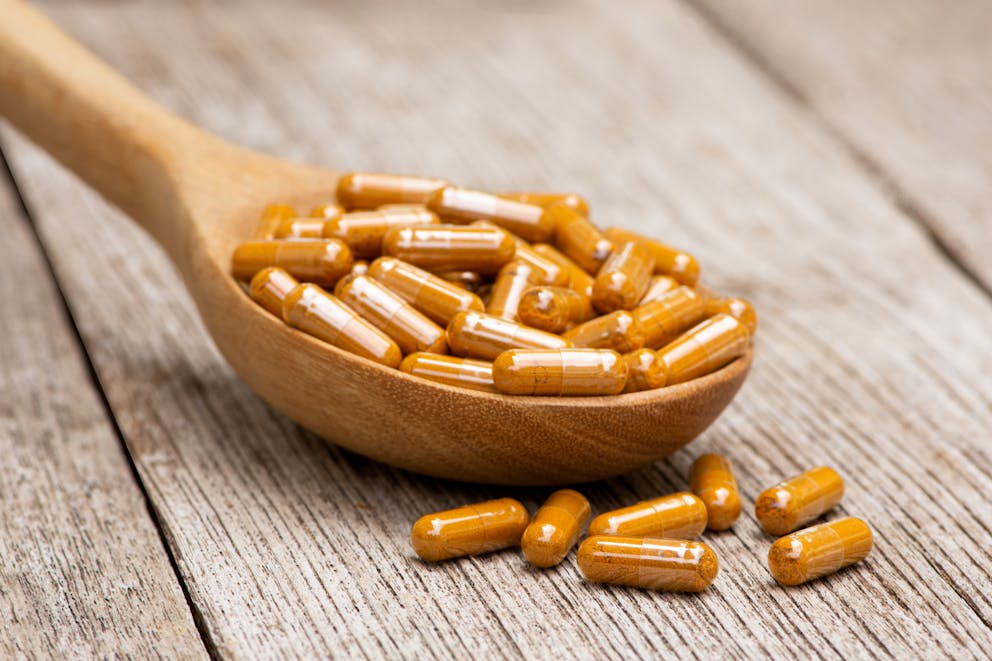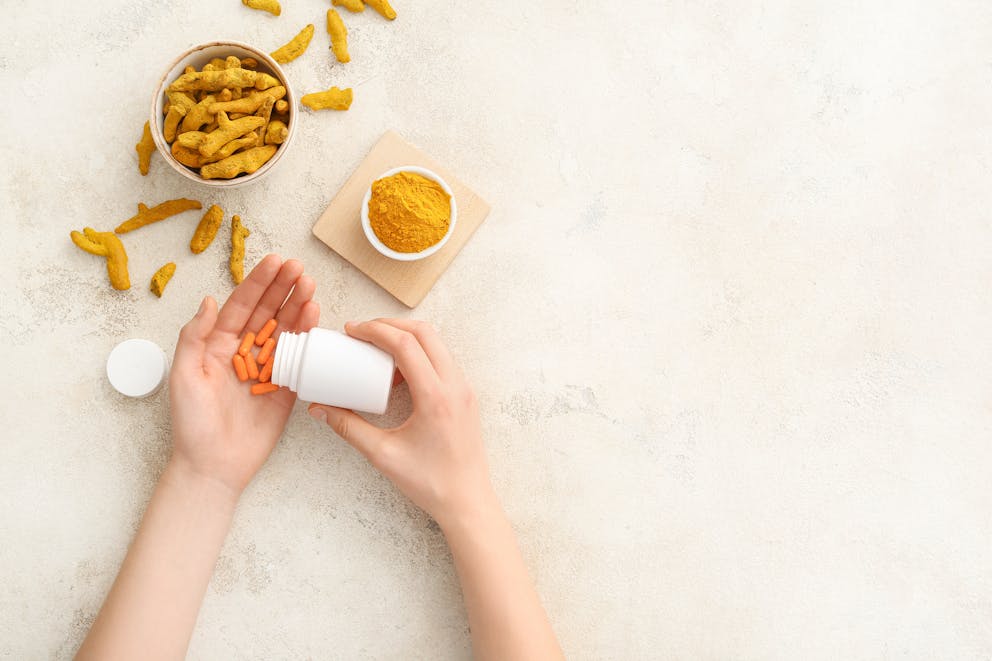9 Science-Backed Benefits of Turmeric and Curcumin

25 Top Home Remedies That Really Work
Explore powerful home remedies for common health issues
Discover how to use everyday household ingredients to address minor ailments
Get practical tips for the safe and effective use of home remedies

25 Top Home Remedies That Really Work
Explore powerful home remedies for common health issues
Discover how to use everyday household ingredients to address minor ailments
Get practical tips for the safe and effective use of home remedies

25 Top Home Remedies That Really Work
Explore powerful home remedies for common health issues
Discover how to use everyday household ingredients to address minor ailments
Get practical tips for the safe and effective use of home remedies

25 Top Home Remedies That Really Work
Explore powerful home remedies for common health issues
Discover how to use everyday household ingredients to address minor ailments
Get practical tips for the safe and effective use of home remedies

25 Top Home Remedies That Really Work
Explore powerful home remedies for common health issues
Discover how to use everyday household ingredients to address minor ailments
Get practical tips for the safe and effective use of home remedies

25 Top Home Remedies That Really Work
Explore powerful home remedies for common health issues
Discover how to use everyday household ingredients to address minor ailments
Get practical tips for the safe and effective use of home remedies

25 Top Home Remedies That Really Work
Explore powerful home remedies for common health issues
Discover how to use everyday household ingredients to address minor ailments
Get practical tips for the safe and effective use of home remedies

25 Top Home Remedies That Really Work
Explore powerful home remedies for common health issues
Discover how to use everyday household ingredients to address minor ailments
Get practical tips for the safe and effective use of home remedies

25 Top Home Remedies That Really Work
Explore powerful home remedies for common health issues
Discover how to use everyday household ingredients to address minor ailments
Get practical tips for the safe and effective use of home remedies

25 Top Home Remedies That Really Work
Explore powerful home remedies for common health issues
Discover how to use everyday household ingredients to address minor ailments
Get practical tips for the safe and effective use of home remedies

25 Top Home Remedies That Really Work
Explore powerful home remedies for common health issues
Discover how to use everyday household ingredients to address minor ailments
Get practical tips for the safe and effective use of home remedies

25 Top Home Remedies That Really Work
Explore powerful home remedies for common health issues
Discover how to use everyday household ingredients to address minor ailments
Get practical tips for the safe and effective use of home remedies

25 Top Home Remedies That Really Work
Explore powerful home remedies for common health issues
Discover how to use everyday household ingredients to address minor ailments
Get practical tips for the safe and effective use of home remedies

25 Top Home Remedies That Really Work
Explore powerful home remedies for common health issues
Discover how to use everyday household ingredients to address minor ailments
Get practical tips for the safe and effective use of home remedies

25 Top Home Remedies That Really Work
Explore powerful home remedies for common health issues
Discover how to use everyday household ingredients to address minor ailments
Get practical tips for the safe and effective use of home remedies

25 Top Home Remedies That Really Work
Explore powerful home remedies for common health issues
Discover how to use everyday household ingredients to address minor ailments
Get practical tips for the safe and effective use of home remedies

25 Top Home Remedies That Really Work
Explore powerful home remedies for common health issues
Discover how to use everyday household ingredients to address minor ailments
Get practical tips for the safe and effective use of home remedies

25 Top Home Remedies That Really Work
Explore powerful home remedies for common health issues
Discover how to use everyday household ingredients to address minor ailments
Get practical tips for the safe and effective use of home remedies

25 Top Home Remedies That Really Work
Explore powerful home remedies for common health issues
Discover how to use everyday household ingredients to address minor ailments
Get practical tips for the safe and effective use of home remedies

25 Top Home Remedies That Really Work
Explore powerful home remedies for common health issues
Discover how to use everyday household ingredients to address minor ailments
Get practical tips for the safe and effective use of home remedies

25 Top Home Remedies That Really Work
Explore powerful home remedies for common health issues
Discover how to use everyday household ingredients to address minor ailments
Get practical tips for the safe and effective use of home remedies

25 Top Home Remedies That Really Work
Explore powerful home remedies for common health issues
Discover how to use everyday household ingredients to address minor ailments
Get practical tips for the safe and effective use of home remedies

25 Top Home Remedies That Really Work
Explore powerful home remedies for common health issues
Discover how to use everyday household ingredients to address minor ailments
Get practical tips for the safe and effective use of home remedies

25 Top Home Remedies That Really Work
Explore powerful home remedies for common health issues
Discover how to use everyday household ingredients to address minor ailments
Get practical tips for the safe and effective use of home remedies

25 Top Home Remedies That Really Work
Explore powerful home remedies for common health issues
Discover how to use everyday household ingredients to address minor ailments
Get practical tips for the safe and effective use of home remedies

25 Top Home Remedies That Really Work
Explore powerful home remedies for common health issues
Discover how to use everyday household ingredients to address minor ailments
Get practical tips for the safe and effective use of home remedies

25 Top Home Remedies That Really Work
Explore powerful home remedies for common health issues
Discover how to use everyday household ingredients to address minor ailments
Get practical tips for the safe and effective use of home remedies

25 Top Home Remedies That Really Work
Explore powerful home remedies for common health issues
Discover how to use everyday household ingredients to address minor ailments
Get practical tips for the safe and effective use of home remedies

25 Top Home Remedies That Really Work
Explore powerful home remedies for common health issues
Discover how to use everyday household ingredients to address minor ailments
Get practical tips for the safe and effective use of home remedies

25 Top Home Remedies That Really Work
Explore powerful home remedies for common health issues
Discover how to use everyday household ingredients to address minor ailments
Get practical tips for the safe and effective use of home remedies

25 Top Home Remedies That Really Work
Explore powerful home remedies for common health issues
Discover how to use everyday household ingredients to address minor ailments
Get practical tips for the safe and effective use of home remedies

25 Top Home Remedies That Really Work
Explore powerful home remedies for common health issues
Discover how to use everyday household ingredients to address minor ailments
Get practical tips for the safe and effective use of home remedies

25 Top Home Remedies That Really Work
Explore powerful home remedies for common health issues
Discover how to use everyday household ingredients to address minor ailments
Get practical tips for the safe and effective use of home remedies

25 Top Home Remedies That Really Work
Explore powerful home remedies for common health issues
Discover how to use everyday household ingredients to address minor ailments
Get practical tips for the safe and effective use of home remedies

25 Top Home Remedies That Really Work
Explore powerful home remedies for common health issues
Discover how to use everyday household ingredients to address minor ailments
Get practical tips for the safe and effective use of home remedies

25 Top Home Remedies That Really Work
Explore powerful home remedies for common health issues
Discover how to use everyday household ingredients to address minor ailments
Get practical tips for the safe and effective use of home remedies

25 Top Home Remedies That Really Work
Explore powerful home remedies for common health issues
Discover how to use everyday household ingredients to address minor ailments
Get practical tips for the safe and effective use of home remedies

25 Top Home Remedies That Really Work
Explore powerful home remedies for common health issues
Discover how to use everyday household ingredients to address minor ailments
Get practical tips for the safe and effective use of home remedies

25 Top Home Remedies That Really Work
Explore powerful home remedies for common health issues
Discover how to use everyday household ingredients to address minor ailments
Get practical tips for the safe and effective use of home remedies
Turmeric is an aromatic spice that has been used for thousands of years. It is a staple in Indian cuisine and is often used in curries or rice dishes.
But this golden-hued spice isn’t just for seasoning; it also has impressive health advantages worth considering.
Let's explore nine proven turmeric benefits and discover how to incorporate this health-promoting spice into your daily routine.

What are turmeric and curcumin?
Turmeric is a root vegetable that belongs to the ginger family Zingiberaceae.
Turmeric contains curcumin, a polyphenol that gives this spice its distinct yellow color and medicinal properties.
Research published in Foods suggests that curcumin has benefits "In the management of oxidative and inflammatory conditions, metabolic syndrome, arthritis, anxiety, and hyperlipidemia."
Furthermore, curcumin has potent antioxidant properties and can help neutralize free radicals, which are linked to cellular damage, inflammation, premature aging, and various chronic diseases.
Watch the video below to discover the impressive health benefits of turmeric.
Health Benefits of Turmeric
Health Benefits of Turmeric
9 Turmeric benefits
Let's take a closer look at nine turmeric health benefits.
1. Lower risk of cardiovascular disease
A report published by the American Heart Association declared heart disease as the leading cause of death in the United States.
The risk of heart disease increases for individuals with high cholesterol, elevated blood pressure, or a family history of cardiovascular disease.
Evidence found by Alternative Therapies in Health and Medicine suggests that curcumin extract can help reduce blood pressure and stabilize cholesterol levels, which is critical to maintaining a healthy heart.
However, more studies need to be conducted to fully confirm the benefits of this natural remedy for cardiovascular health.
2. Powerful anti-inflammatory effects
During injury or illness, your body deploys inflammation to safeguard against infections and diseases. Unfortunately, inflammatory processes typically lead to swelling, pain, and redness.
Unresolved inflammation can lead to chronic inflammatory conditions such as diabetes, cardiovascular disease, and irritable bowel syndrome.
Research conducted by Dovepress suggests that curcumin can help combat inflammation by blocking the production of inflammatory compounds and at the same time, stimulates the release of anti-inflammatory substances.
Curcumin may also help reduce levels of enzymes responsible for perpetuating inflammation, which can provide relief for those suffering from inflammatory conditions.
3. Potent antioxidant properties
Oxidative stress occurs when the body lacks the necessary antioxidants, leading to increased concentrations of free radicals in your system.
Free radicals are unstable molecules that can damage cells and contribute to chronic diseases such as cancer and Alzheimer's. Factors including regular consumption of processed foods, air pollution, and inhalation of cigarette smoke can increase the production of free radicals.
A study published by Molecules explains that curcumin has been shown to have the potential to combat free radicals and protect cells from oxidative damage.
4. May aid in cancer prevention
Cancer develops when cells grow uncontrollably, evade normal cellular regulation, and spread to other body parts.
Research published in Nutrients found that curcumin may impact various signaling pathways related to cancer growth and suggests that curcumin may help eliminate cancer cells.
However, more research is needed to determine curcumin's role in managing cancer progression.

5. Promotes mental health
According to the World Health Organization, around 280 million people suffer from depression around the world.
A study published in the Indian Journal of Pharmaceutical Sciences suggests that curcumin has "antidepressant activity through modulating the serotonin and dopamine system."
These neurotransmitters are responsible for mood regulation, and low levels of serotonin and dopamine have been linked to depression, anxiety, and other mood disorders.
Additionally, research shows that curcumin is comparable to Prozac in managing depression—without the potential side effects.
6. Supports a healthy weight
According to The National Institute of Diabetes and Digestive and Kidney Health (NIDDK), around 2 in 5 adults and almost 1 in 5 children are considered obese in the United States.
Obesity can increase the production of oxidative stress, which can impair energy-making processes and disrupt metabolic functions, creating a vicious cycle of weight gain and disrupted cellular functions.
Research published by the International Journal of Molecular Sciences discovered that curcumin's antioxidant properties can help prevent oxidative stress and support metabolic health.
Because of the complexity of weight management, there is still more to learn before researchers can confirm the long-term effects of curcumin in obese patients.
7. May reduce bone loss
The risk of osteoporosis or weak bones increases as we age.
Luckily, there are ways to improve bone health, such as getting enough calcium, eating dark green vegetables, taking vitamin D supplements, and consuming curcumin.
A study conducted by World Neurosurgery found that "Curcumin was significantly associated with a decrease in the osteoporosis progression and bone turnover markers of patients with spinal cord injuries after six months."
Consuming turmeric not only helps your bones but may also improve the health of your joints and reduce the risk of rheumatoid arthritis and other inflammatory conditions.

8. Relief from premenstrual syndrome
Women who experience menstrual cramping know how difficult it can be to function properly during that time of the month.
Symptoms like abdominal pain, mood swings, bloating, and fatigue can significantly affect many aspects of a woman’s life.
Research conducted by the Journal of Women's Health found that inflammation could be one factor that contributes to premenstrual syndrome.
Turmeric has potent anti-inflammatory properties and may be an effective remedy for menstrual pain.
A study conducted by F1000 Research shows that curcumin can reduce prostaglandins, a group of pro-inflammatory compounds linked to menstrual cramping.
However, it’s important to remember that curcumin has blood-thinning properties, and it’s not recommended to use turmeric if you have a bleeding disorder.
9. Improves memory
The impact of memory loss can be devastating and affect us at any age. Early symptoms include forgetting names, misplacing items, and becoming lost in familiar places.
Progressing memory loss can lead to Alzheimer's disease, which, according to evidence, is linked to free radicals, oxidative stress, and inflammation.
A study conducted by Pharmaceuticals discovered that curcumin’s antioxidant and anti-inflammatory properties can help boost working memory and increase processing speeds.

Forms of turmeric and how to use them
The growing popularity of turmeric has made it readily available in various forms, such as capsules and pills, roots, extracts, teas, and powders.
Capsules and pills are pre-measured and a convenient option to easily integrate turmeric into your daily routine.
The dosage of turmeric supplements can vary, and it’s crucial to follow the instructions on the product label to maximize the health benefits of curcumin while minimizing the risks of side effects.
Turmeric extract is a concentrated version of turmeric that is typically used for therapeutic purposes and can be included in various recipes and drinks.
Turmeric tea is flavorful, easy to prepare, and has been used for centuries to promote a healthy body.
Meanwhile, turmeric powder can be used in cooking to enhance flavors as a flavor enhancer or with golden milk, an Indian beverage made from turmeric powder and milk.

How to boost curcumin absorption
Even though there are many benefits to taking turmeric extract, the body isn’t very effective at absorbing curcumin.
To maximize the health benefits of curcumin, it’s best to combine it with black pepper and healthy fats.
Black pepper contains piperine, an alkaloid compound that has been shown to enhance the absorption of curcumin in the bloodstream.
Another option is to combine turmeric with fatty acids. Since turmeric is fat-soluble, it will dissolve when combined with fats such as olive or coconut oil, which makes it easier for your body to absorb curcumin.
Cooking turmeric can also help increase the potency and bioavailability of curcumin.
If you plan to take a curcumin supplement to support a healthy body, it’s recommended to choose a high-quality supplement formulated with piperine and take it with meals to maximize its absorption.
Possible risks of curcumin and turmeric
Turmeric extracts, powders, and supplements are generally considered safe and well-tolerated.
However, high doses may increase the risk of side effects such as:
Nausea
Dizziness
Gastrointestinal upset
Vomiting
Constipation
Stomach aches
Increased bleeding
It is important to note that curcumin may interact with certain medications, and it’s essential to discuss the use of a turmeric-containing dietary supplement with a healthcare provider if you have pre-existing health conditions or are taking prescription medications.

Key takeaways
Curcumin, a potent polyphenol found in turmeric root, has been shown to positively affect the management of depression, osteoporosis, heart disease, and obesity.
To maximize the health benefits of turmeric, it’s recommended to combine it with black pepper and consume it with healthy fats, which enhances the intestinal absorption of curcumin.
While curcumin and turmeric are usually safe for consumption, it's crucial to be aware of potential side effects such as stomach irritation and increased risk of bleeding if taken in excessive amounts.
FAQ
1. What are the top health benefits of turmeric?
Some of the top benefits of turmeric are linked to curcumin’s potent properties that can help manage various chronic health issues.
Turmeric may help protect against cardiovascular diseases, combat free radicals, aid in cancer prevention, alleviate menstrual pain, reduce bone loss, manage depression, and promote a healthy weight.
2. What is curcumin?
Curcumin is a bioactive compound in turmeric, which can be used for flavoring dishes, food coloring, and health supplements.
Curcumin has been found to combat oxidative stress, lower chronic inflammation, promote a healthy heart, and may benefit individuals with depression and anxiety.
3. Should I take turmeric with black pepper?
Yes, it is a good idea to take turmeric with black pepper. Combining these two ingredients can help make curcumin more bioavailable, which enhances its intestinal absorption.
4. How does black pepper increase the bioavailability of curcumin supplements?
Black pepper contains piperine, which can enhance the absorption of curcumin into the body. Piperine increases intestinal uptake of curcumin and protects it from enzymatic breakdown.
5. Is it safe to take turmeric every day?
Taking turmeric supplements every day is generally well tolerated and considered safe.
However, consuming large doses of turmeric or curcumin for an extended period can increase the risk of side effects and may result in stomach aches and gastric ulcers.
6. Does turmeric have any drug interactions?
Turmeric may interact with certain medications, including blood-thinning medications, antidiabetic drugs, and chemotherapeutic treatments.
For this reason, it is important to consult medical professionals before changing your dietary regime.
7. Who should not take turmeric?
Individuals who are allergic to turmeric shouldn't take turmeric or curcumin-containing supplements.
Additionally, people who are taking certain drugs, such as blood thinners and hormone replacement therapy, should refrain from using turmeric since it could affect the potency of the medications.
Sources
https://www.niddk.nih.gov/health-information/health-statistics/overweight-obesity
https://www.sciencedirect.com/science/article/abs/pii/S187887501830559X
Previous blog
The Best Exercise for DiabetesNext blog
9 Green Tea Benefits for Skin HealthTags

Popular
08/21/2024
55.7K views
02/23/2025
46.8K views
11/18/2024
281.1K views
03/18/2024
11/21/2022




